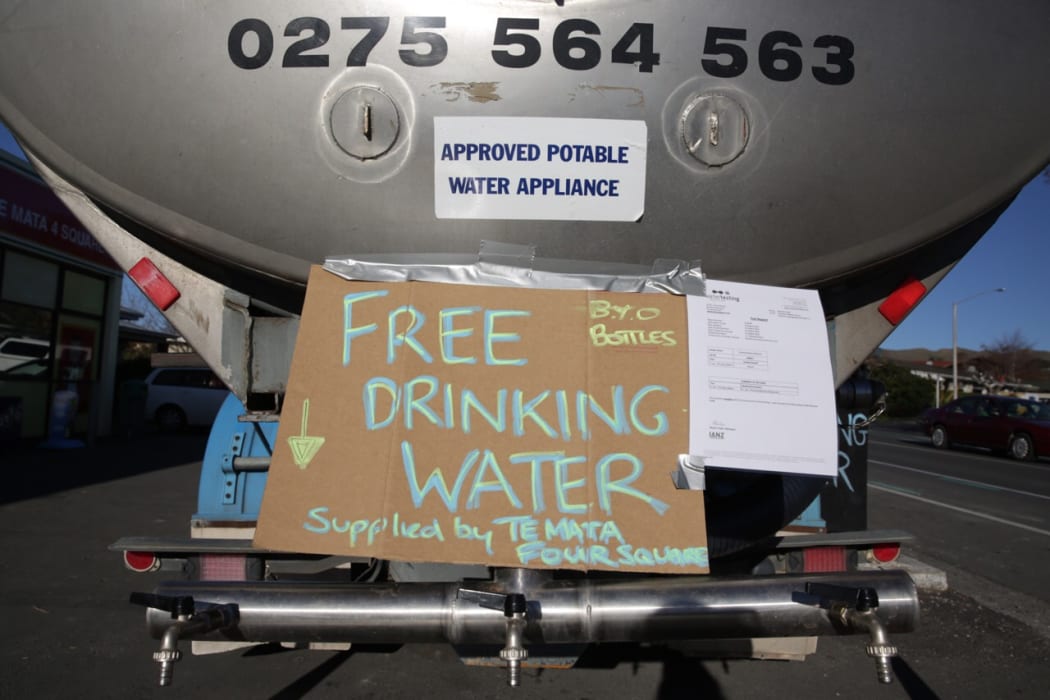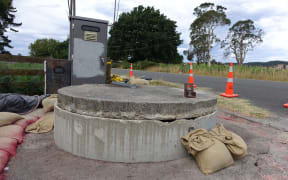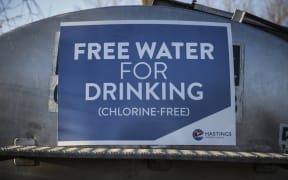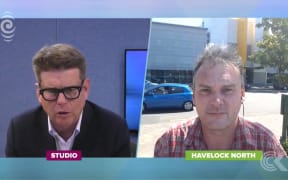A man left with a rare brain disorder from the Havelock North water contamination disaster has called a proposal for financial help "not far away from an insult".

A decision will be made today by the Hastings District Council on how they will compensate those who are still suffering the effects of last winter's water crisis. Photo: RNZ / Rebekah Parsons-King
More than 5000 people were struck down by the gastric bug last winter and for some the effects have not gone away.
Grant is one of at least three people left with Guillain Barre syndrome, in which the body's immune system attacks parts of the nervous system.
"I'm still on painkillers, just for back pain and stuff that's come about as a result of this and I still have numb fingers and numb toes, and I'm also pretty tired to be quite honest."
Others have ongoing gut and bowel problems, and reactive arthritis.
The Hastings District Council will decide today what it is prepared to do for those who are still suffering.
A document going before the council recommends it "establish a budget provision of $100,000 to provide funding, if necessary, for financial assistance to those with ongoing health impacts due to the contamination event, with this to be treated as unbudgeted expenditure".
The council paper says before committing funding, "officers will work with the DHB, ACC and Ministry for Social Development to further explore other avenues for financial assistance to those affected".
The Hastings Mayor, Lawrence Yule, said the scheme might look similar to one set up for businesses at the peak of the crisis. The total package could be in the order of $50,000-$100,000 and people would need to apply. "We would look at that in consultation with doctors in the DHB to make sure we're getting to the people that really need it."
Mr Yule told Morning Report the council would talk to the Accident Compensation Corporation (ACC) and the district health board about boosting the planned fund.
"We're aware that a number of people are suffering the long term impacts from campylobacter.
"They're unable to get assistance from ACC. They have gone past the expiry date for assistance from the government immediate programme and they have substantial medical and other bills associated with the contamination."
Guillain Barre sufferer Grant was unimpressed.
"I think that's nothing, I think it's not far away from an insult if you like."
The Blenheim man was visiting his daughter in Havelock North last year when he contracted campylobacter and said every day was now a challenge.
"Had to learn to walk again, had to learn to talk again, to learn to feed myself you know, couldn't remember. I don't see why I should have to apply to them for anything as such, I think they should be offering me assistance."
Mr Yule said he understood some people were severely disadvantated. There was government assistance if people were unable to work, he said, and the share of the approximately $100,000 fund would be for severe hardship and given to people on compassionate grounds.
Kerry Mackintosh got seriously unwell from campylobacter just before the major outbreak, and has also contracted Guillain Barre.
"I'm off the crutches mostly so that's a huge plus but... my legs are still very weak so I can't walk more than 100 to 150 metres - just being very, very slow."
Ms Mackintosh said the prospect of council help was surprising because the government inquiry into the disaster was not yet complete.
But she was doubtful about applying for any aid being offered.
"In all honesty probably not, because I've got too much else that I've got to contend with. But people should be entitled to some sort of compensation, at least for their medical expenses - which have been quite high."
The Accident Compensation Corporation has received fewer than three claims over the crisis and declined them.
It said inhaling or ingesting a virus or bacteria is not considered an accident, unless it is the result of a criminal act.
But an ACC lawyer, John Miller, thinks there was a case to answer.
"My view is that should be covered by ACC and that the people who have been turned down should file a review of that and challenge that decision because as I see it it comes under the definition of accident."
A government inquiry into the water contamination is due to report back by the end of next month.






